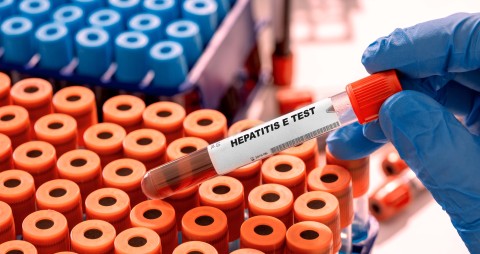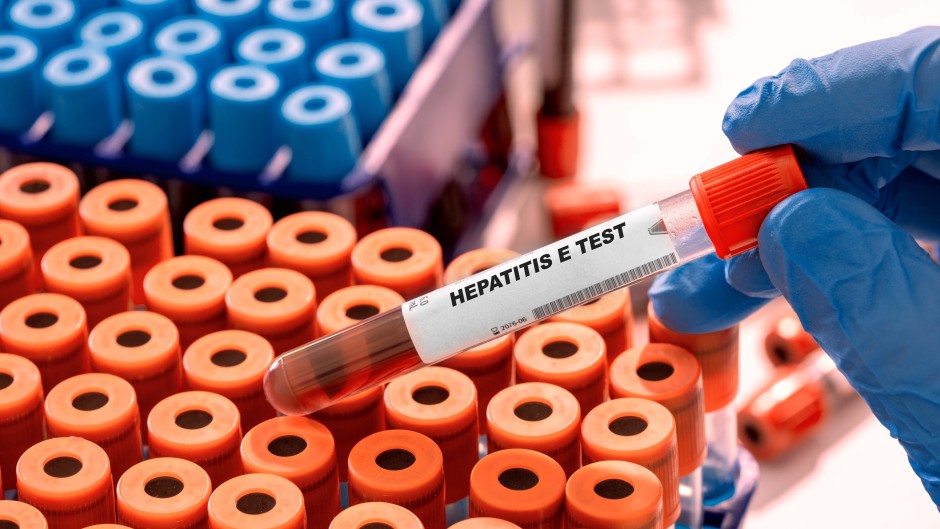
JOHANNESBURG - The 28th of July is set aside every year on the global health calendar as ‘World Hepatitis Day’.
The date was chosen as it is the birthdate of Professor Baruch Blumberg, who together with colleagues was awarded the Nobel Prize in 1976 for the discovery and identification of the hepatitis B virus.
The discovery led to the production of a highly effective vaccine in 1980.
Given that hepatitis B is the singular biggest cause of primary liver cancer worldwide, the hepatitis B vaccine represents the first ever effective anti-cancer vaccine.
It is estimated that the discovery of hepatitis B and the subsequent vaccine has prevented hundreds of millions of hepatitis B infections and millions of cases of liver cancer due to hepatitis B.
So why is this not generally known? Why do people still say what is hepatitis? There are several reasons but mostly because those with chronic hepatitis B or C infection, are silently infected.
They will only manifest symptoms when significant liver damage has already occurred, or they develop liver cancer.
Hepatitis implies ‘inflammation’ of the liver.
There are many causes, but a group of viruses, called hepatitis viruses, are a group of different viruses that can infect the liver.
These are hepatitis A, B, C, D or E. Hepatitis A and E causes acute hepatitis, the classic ‘yellow jaundice’ where patients become jaundiced and recover with time.
Hepatitis A and E are acquired by eating raw, improperly washed, or undercooked food that has been prepared by someone unknowingly with infection at the time.
Most get better and develop lifelong immunity. An effective vaccine exists for hepatitis A and is part of some vaccine schedules.
Our major challenges are hepatitis B and C because if people become infected lifelong chronic infection is possible.
In South Africa, and Africa as a whole, the commonest time of hepatitis B exposure is in childhood. Children infect each other.
It is a highly infectious virus. The other risk is mother-to-child transmission.
Two factors are important to understand - infection in childhood carries a very high risk of lifelong chronic infection and children or babies when infected, almost never show any signs of jaundice or illness at that point.
So, primary infection is almost silent, and lifelong infection is mostly without symptoms.
During this time, the virus lives in the liver and may cause scarring and damage and unfortunately, hugely raises the risk of liver cancer.
Liver cancer is the second leading cancer in men in Africa, and more importantly, it occurs well before the age of 50 years, frequently in those younger than 30.
We effectively have young people dying from a vaccine-preventable illness.
We estimate almost 820 000 annual deaths from liver cancer worldwide, the majority in Africa and other high hepatitis B burden countries.
Switching to hepatitis C, requires blood-to-blood transmission for infection, so people who received blood transfusions before 1992 in South Africa are at risk.
Nowadays the most frequent means of hepatitis C infection is in people who inject drugs. Again, infection is silent and only manifests when liver problems arise.
In all these instances, infection is silent, but more importantly preventable, if not treatable with simple interventions to prevent the dreaded complications.
What we must do is:
- Mother-to-child transmission of hepatitis B prevention: a birth dose of hepatitis B vaccine, screening all pregnant Moms for hepatitis B and further prevention if required
- Adding hepatitis B screening to routine screening for HIV and other routine health checks
- Screening those at risk for hepatitis C (people who have ever injected drugs), blood transfusions before 1992 – and linking them to simple curative treatment.
This will go a long way to eliminating viral hepatitis. We are saying this World Hepatitis Day
#You Don’t Know Until You Know! # Get Tested #Get Treated #Get Vaccinated
Professor Mark Sonderup, Hepatology Division, Groote Schuur Hospital and UCT; Gastroenterology and Hepatology Association of Sub-Saharan Africa (GHASSA)
*GHASSA will host the African Viral Hepatitis Convention in May 2024 in Cape Town – driving advocacy, empowerment and elimination of viral hepatitis in Africa!

